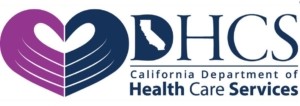Quarantine and Addiction: Numbers Rising for Substance Abuse
Table of Contents
Some mental health professionals have been calling the Covid-19 lockdown “a pandemic within a pandemic” due to the rising numbers of people struggling with substance abuse as a result of the quarantine and its effects. While some people may think that being house-bound or having a limited number of people in their “bubble” would decrease drug or alcohol use, simply because of bars shutting down or mandatory curfews, the opposite is happening to many Americans.
There have been many memes and jokes about “day drinking” during quarantine, but for thousands, this isn’t funny – it’s a scary reality, and the effects of isolating lockdown, uncertain financial situations, and worries about personal health or the health of loved ones has increased the number of people with substance abuse problems.
We’re looking at the effects of quarantine on addiction and some resources for individuals who are concerned about their own personal consumption, or the health of someone close to them.
The Effects of Isolation on Mental Health
Without social contact, many people struggle with anxiety, depression, or other mental health issues. With the suddenness of “lockdown” in many areas, plus the job insecurity and worries about catching coronavirus, vulnerable people may have had their conditions exacerbated. People need purpose and connection, and without those, especially for individuals who may have been furloughed or otherwise jobless, motivating themselves to learn a new skill or be productive outside of drinking or using drugs is a challenge.
With social contact mostly limited to online interactions, many people “get into their own head” and begin spiraling without personal contact in their daily lives. Those who rely on face-to-face treatment and therapy are missing that vital connection, and as a result, many may begin “mentally relapsing.”
Quarantine and Early Sobriety
One of the most important things for people working through addiction is the network of support, including in-person accountability. Programs like AA, SMART Recovery, and Celebrate Recovery, the Christian-centered program, have all had to suspend in-person meetings. While online meetings and video chats have replaced many, the accountability of physically attending the meeting has made it easier for people to skip meetings.
The sales of alcohol in the US have risen sharply, as have the number of delivery sales. Making it easier for those in recovery to obtain alcohol has made relapsing easier. Telemedicine also may have a role in the increase in prescription drug abuse. Many individuals find it easier to obtain opiates or other prescription medications through online appointments.
Mental health calls have increased, as have suicides, and without outreach programs from rehabilitation centers, those struggling with sobriety are slipping through the cracks, without a social “safety net” to help them be accountable to themselves.
Establishing a routine and sticking to it is critical, even when in lockdown. Wake up at the same time, get dressed, and brush your teeth, even if you aren’t going anywhere. Make an appointment to call or video chat with a sponsor or sober friend at a certain time each morning, keeping a reliable connection. Sobriety in quarantine can be harder to keep, but many rehabilitation centers are offering online and other alternative resources for clients.
Dana Point Rehab Campus Can Help
If you’re struggling with addiction, or even if you’re not sure if you have a problem, Dana Point Rehab Campus can help. We offer medically supervised detox and inpatient treatment in a safe, secure environment. Or, we can work with those in need on an intensive outpatient basis. Our intake counselors are here to meet you where you are and help you with options for recovery. Don’t wait – Contact Us today!









Leave a Reply
Want to join the discussion?Feel free to contribute!